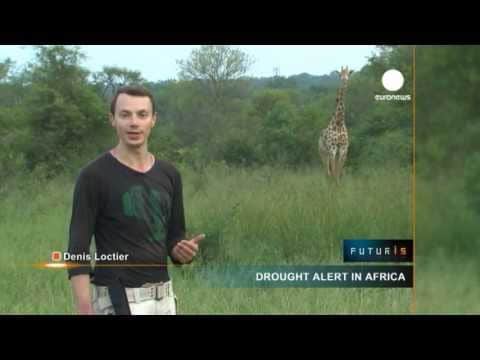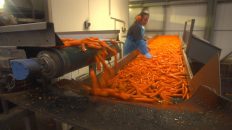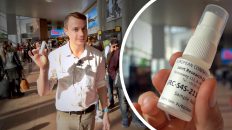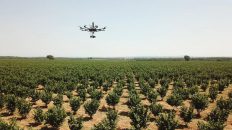Recurring water shortages endanger local ecosystems and threaten agriculture-based communities.
As climate change continues, forecasters expect droughts to become more frequent and severe.
In South Africa’s Limpopo province, the Mabodibeng dairy cooperative produces milk for local villages.
Stephen Lebotsa, the chairman of the cooperative, says:
“If there’s a drought, the small farms will collapse. They won’t function. They will get no profit whatsoever. If I could get advance warning about the drought, I would be able to organise some feed for my cattle, and if I’ll be able to see that my dam is up to date, [there’s] enough water in the dam.”
A group of European and African scientists from an EU research project have visited to try to understand how to help local farmers prepare for droughts.
Jean-Marie Kileshye Onema, Waternet’s Acting Manager and Research Co-ordinator says it’s a multi layered problem:
“Obviously, droughts hit the most vulnerable in a population, and expose them to issues of food security, health or even sanitation. And this can be seen throughout the continent. And the focus of this project is to try to improve or mitigate risks related to drought in the African context.”
Farmers generally rely on short-term TV weather forecasts.
Existing medium and long-term models, based on satellite and ground data, are too complicated to be assessable to the general public.
Micha Werner Associate professor in flood management, Deltares & UNESCO-IHE/DEWFORA project coordinator says farmers don’t need that level of detail:
“They understand how their farms work, we don’t need to tell them that. We can maybe give them that key piece of information that help them make decisions to well, to increase their resilience to drought events”.
Researchers are proposing an early warning system that would make simple recommendations based on all the available data.
Scientists, authorities and local people would work together to make such a drought alert system reliable and efficient.
And here the EU can help. Jürgen Vogt Drought Group Leader, Joint Research Centre:
“At European level, we are able to provide different types of data, like meteorological data – monitoring data, forecasting data, up to a few days at least. We can also try to do some seasonal forecast, and then out of this data we need to build some indicators. So one of our [tasks] at the Joint Research Centre is to develop different kinds of indicators, which you can both calculate at the continental level, the regional level, and possibly at what we call a local level in this case.”
Researchers are also analysing the management of water resources across the continent, looking for ways to improve both governance and cooperation between African regions.
But at heart the problem is simple. Jakkie Venter is Tzaneen Area Manager for the South African Department of Water Affairs:
“The situation is that there’s not enough water in South Africa. The rainy season is short and you get long winters with low flow. So we need research to better the management of the water resources.”
With the risk of droughts increasing, there is little time to waste.





